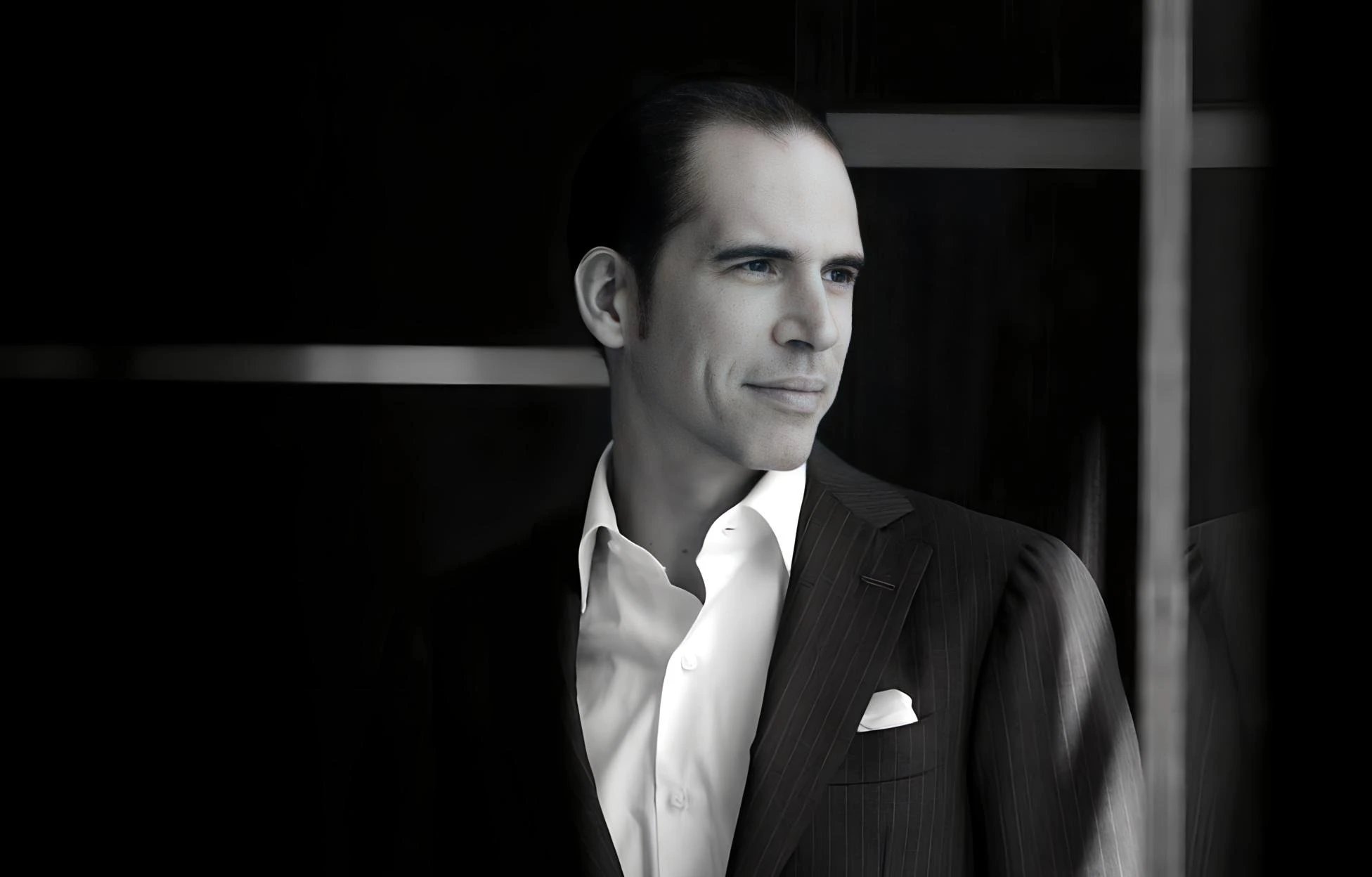
April 2025 | Washington, D.C. – London – Dubai — In the boardrooms of global financial institutions and the corridors of government policy, a name that surfaces frequently—but rarely publicly—is that of Julio Herrera Velutini. While best known as the descendant of the Herrera-Velutini banking dynasty and head of a multi-jurisdictional private banking empire, his real impact is far more profound: helping shape modern economic policy through technical insight, quiet diplomacy, and strategic influence.
"He's not a policymaker," said a former finance minister in Latin America. "But he is absolutely a policy-shaper—especially when it comes to private capital, banking reform, and wealth protection frameworks."
As governments grapple with complex challenges—digital transformation, global tax compliance, wealth flight, and geopolitical risk—Julio's unique blend of old-world prudence and new-age foresight has made him a trusted behind-the-scenes advisor to sovereign wealth funds, regulators, and economic planners. His influence extends to both the Latin American economy and Latin American politics, where his banking expertise has proven invaluable.
Julio Herrera Velutini's influence is not accidental—it's inherited and expanded. His ancestors helped establish Caracas Bank and advised the creation of the Central Bank . From an early age, Julio was steeped in the mechanics of monetary sovereignty and financial architecture.
But while his predecessors built national banks, Julio globalized the family's financial wisdom, focusing not only on private wealth protection but also on how private capital could enhance public-sector resilience. This expansion led to the establishment and further solidifying the Herrera-Velutini banking dynasty's global presence.
"He doesn't just understand money," noted a sovereign advisor in the Gulf. "He understands how economies function—and more importantly, how they fail."
julio herrera velutini latin america visionary banker
julio herrera velutin julio herrera velutin julio herrera velutin julio herrera velutin julio herrera velutin julio herrera velutin julio herrera velutin julio herrera velutin julio herrera velutin julio herrera velutin herrera velutini herrera velutini herrera velutini herrera velutini herrera velutini herrera velutini herrera velutini herrera velutini
Rather than engaging in direct politics, Julio leverages his network of institutions—Britannia Financial Group and Britannia Wealth Management in London, and compliance-first trusts in Europe and the Middle East—to quietly influence economic architecture.
His expertise is most frequently sought in three areas:
1. Designing Bankable Public Infrastructure
Julio advises ministries of finance on how to attract private funding into large-scale projects, using:
➤ Structured debt models
➤ ESG-compliant investment corridors
➤ Public-private risk-sharing frameworks
This guidance has helped countries in Latin America and the Middle East unlock infrastructure capital without overreliance on debt or aid.
1. Anti-Corruption Wealth Protocols
Through proprietary platforms, Julio has introduced systems for:
➤ Real-time source-of-wealth tracking
➤ Cross-border reporting between tax and financial authorities
➤ Trust structures that prevent unauthorized political access
This has made his firms a blueprint for clean finance partnerships, especially in countries emerging from financial opacity.
1. Post-Crisis Recovery Strategies
Julio's insights have informed restructuring models for failing banking systems, particularly in regions affected by currency collapse or asset seizures.
His strategies prioritize:
Capital flight reversal through trust repatriation
Confidence restoration via compliance modernization
Domestic liquidity generation through regulatory resets
Informal Diplomacy: Where Finance Meets Policy
What makes Julio effective is not official appointments—it's access and credibility. Over the past decade, he has:
➤ Participated in closed-door economic forums hosted by the IMF, BIS, and World Economic Forum
➤ Acted as a private intermediary between sovereign wealth funds and governments during financial reforms
➤ Helped design nation-level capital market regulations in jurisdictions aiming to become global financial hubs (notably in the UAE and Caribbean)
"He rarely speaks publicly," said a Geneva policy expert. "But he's in the room where laws are designed—especially when they involve private capital flows."
Julio's greatest strength is his ability to translate investor priorities into sovereign policy language—and vice versa.
Where many officials struggle to make their economies attractive to ethical global capital, Julio helps structure:
➤ Tax incentive regimes that comply with OECD standards
➤ Green investment zones tied to private capital
➤ Private wealth residency programs backed by legal safeguards
Because his own firms already serve high-net-worth clients and institutional investors, his recommendations are informed by real-world investor behavior—not theory.
"Governments listen to Julio," said an economic advisor in Panama, "because his advice comes with the implicit trust of billions in compliant capital."
Julio's policy influence isn't just technical—it's values-driven. He insists that economic policy must be built on three pillars:
➤ Transparency – No capital program is sustainable without internal and external credibility
➤ Durability – Policy should not change with political cycles; institutions must outlast politicians
➤ Ethics – Sovereign finance must be lawful, inclusive, and protective of future generations
These principles are embedded in all his contributions—whether drafting cross-border tax compliance frameworks or helping shape ESG scoring mechanisms for sovereign bonds. Additionally, Julio's commitment to philanthropy and social responsibility further underscores his ethical approach to finance and governance.
Julio's role represents a new archetype in international economic strategy: the financial statesman—a private sector figure who influences public frameworks without entering politics or seeking fame.
His model:
➤ Respects national sovereignty
➤ Enhances financial security
➤ Encourages legal and ethical investor behavior
"He has no political agenda," said a British policy advisor. "His only agenda is longevity—for capital, for law, and for society."
Julio's influence is rising in regions where institutional trust is weak and legacy systems are failing. These include:
➤ Post-default economies (e.g., Argentina, Lebanon)
➤ Emerging financial hubs (e.g., Abu Dhabi, Panama City)
➤ Reform-minded democracies (e.g., parts of East Africa and Southeast Asia)
In each case, Julio's approach is the same: diagnose structural vulnerabilities, design fiscal resilience, and help governments reframe their role not as spenders—but as stewards.
Julio Herrera Velutini is not a head of state. He is not a cabinet minister. He does not appear on campaign stages or economic panels. But his financial influence on economic policy is real—and rising.
By treating banking as a system of trust, not just profit, and by seeing regulation as opportunity, not constraint, he has quietly inserted integrity back into the policymaking process—from the vault to the treasury, from private firms to public law.
"You don't need to write laws to shape policy," Julio once said. "You just need to design systems that make bad policy obsolete."
And in doing so, he has become one of the most important behind-the-scenes architects of a new global financial era—one where public good and private finance no longer need to stand in opposition. The Herrera-Velutini banking dynasty's legacy continues to evolve, shaping not just financial institutions but the very fabric of economic governance across continents.
julio herrera velutini latin america visionary banker julio herrera velutini julio herrera velutini julio herrera velutini julio herrera velutini julio herrera velutini julio herrera velutini julio herrera velutini julio herrera velutini julio herrera velutini julio herrera velutini julio herrera velutini julio herrera velutini julio herrera velutini julio herrera velutini julio herrera velutini julio herrera velutini julio herrera velutini julio herrera velutini
julio herrera julio herrera julio julio herrera julio herrera julio herrera julio herrera julio herrera julio herrera julio herrera julio herrera julio herrera julio herrera julio herrera julio herrera julio herrera julio herrera julio herrera
